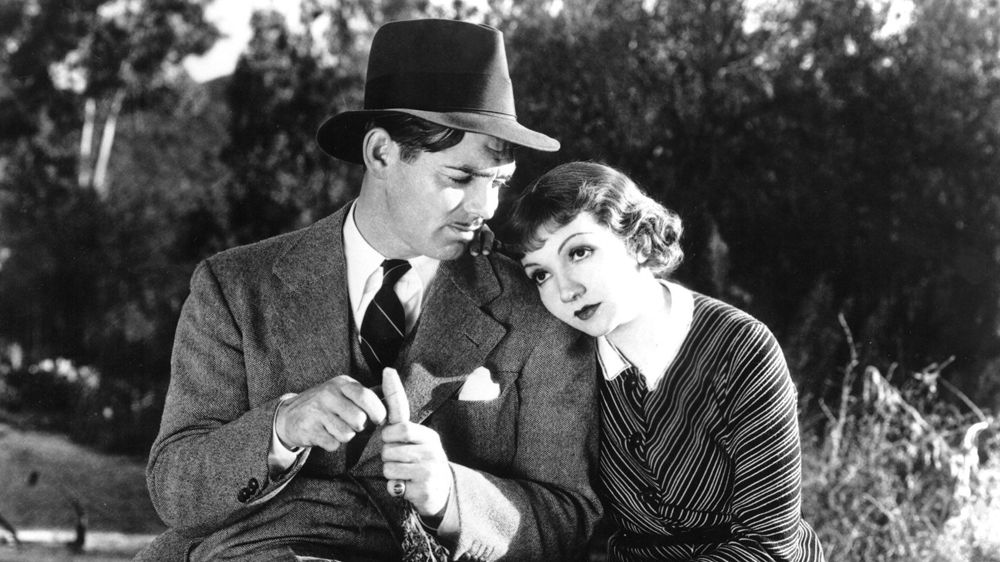Venice Celebrates Its 75th Edition With a Look Back at Its History
By Nick Vivarelli
LOS ANGELES (Variety.com) – The first Esposizione d’Arte Cinematografica, later to be known as the Venice Intl. Film Festival, kicked off Aug. 6, 1932, with a screening of Rouben Mamoulian’s “Dr. Jekyll and Mr. Hyde” on the terrace of the Lido’s Hotel Excelsior, followed by a grand ball.
The pic, produced by Paramount, went on to win an acting Oscar for Fredric March in an auspicious start, at least as an awards tastemaker, for the world’s oldest international film fest. It kicks off its 75th edition on Aug. 29.
Frank Capra’s “It Happened One Night,” above, Edmund Goulding’s “Grand Hotel,” King Vidor’s “The Champ” and “A Nous la liberté” by René Clair are among other titles, now classics, that screened during that first edition. The fest was born from Italy’s desire to be seen as the center of art and culture in the wake of the disastrous World War I, but also as a perfect solution to the slump that Venice hotels had suffered after the 1929 stock market crash, says film historian Peter Cowie, author of “A Concise History of the Venice Film Festival,” published by the fest’s parent organization, the Biennale.
Giuseppe Volpi di Misurata, founder of Venice’s Ciga Hotels chain, was Biennale president at the time. Besides getting Italian prime minister and Fascist party leader Benito Mussolini’s approval to launch the event, Volpi even reportedly managed to get Il Duce’s assurance that they wouldn’t meddle with selection process and prizes.
But those assurances didn’t last long.
After the 1937 edition, which attracted such stars as Marlene Dietrich and Bette Davis, Venice entered a dark phase: Italy’s Fascists and Germany’s Nazis used it for propaganda, reps from Hollywood and France stopped going, several editions were skipped and the Cannes Festival was planned as an alternative. But the start of World War II in September 1939 delayed the French fest until 1946.
In 1946, after WWII and the defeat of the Nazis and Fascists, Hollywood came back to Venice with Jean Renoir’s “The Southerner,” France returned with Marcel Carne’s “Les Enfants du Paradis” and Roberto Rossellini’s “Paisà” premiered on the final night.
But the year 1946 was key also because thanks to “diplomatic initiatives” the future time slots of Venice (September) and Cannes (May) were established, which turned out to be “providential for Venice,” as current Biennale president Paolo Baratta recently put it, in a clear reference to the importance of this slot to position the Lido as an awards season launching pad.
Cowie calls the decade from the late ’40s onwards “one of the finest periods in its existence,” on a par with “more recent years.”
“All the great films were there,” he notes, citing Luchino Visconti’s “La Terra Trema,” John Huston’s “The Treasure of the Sierra Madre” and Akira Kurosawa’s “Rashomon,” the first Japanese film that really took the world by storm.
During the ’60s, under artistic director Luigi Chiarini, retrospectives became “even more important than the competition,” says Cowie. Chiarini is remembered for his critical rigor and penchant for placing works by emerging talents of the day, such as Jean-Luc Godard, Francois Truffaut and Liliana Cavani, alongside established masters including Carl Theodore Dreyer. He was ousted in the wake of 1968-related turbulence that resulted in a so-called “cultural dissent” decade during which the fest was partly suspended and prizes were abolished.
The Golden Lion prize resumed in 1980 under the leadership of director Carlo Lizzani, who “really went all out to restore the prestige of the event,” says Cowie. Lizzani was the first Venice director to travel to the U.S. seeking out commercial films with an auteur pedigree, such as Philip Kaufman’s “The Wanderers,” Don Siegel’s “Escape From Alcatraz” and Steven Spielberg’s “Raiders of the Lost Ark” and “ET.”
Similarly, when director Gillo Pontecorvo, who had close Hollywood ties, took over in the ’90s, he vowed to stop the “useless melancholy” of hollow auteurism while also pledging that Venice would fight against the “standardization” of cinema.
It’s an approach shared by Pontecorvo’s two most illustrious successors, Marco Mueller and Alberto Barbera, the Lido’s current chief, who “has this uncanny knack of picking the big Hollywood film to open the festival that can really make a mark,”
Cowie notes.

